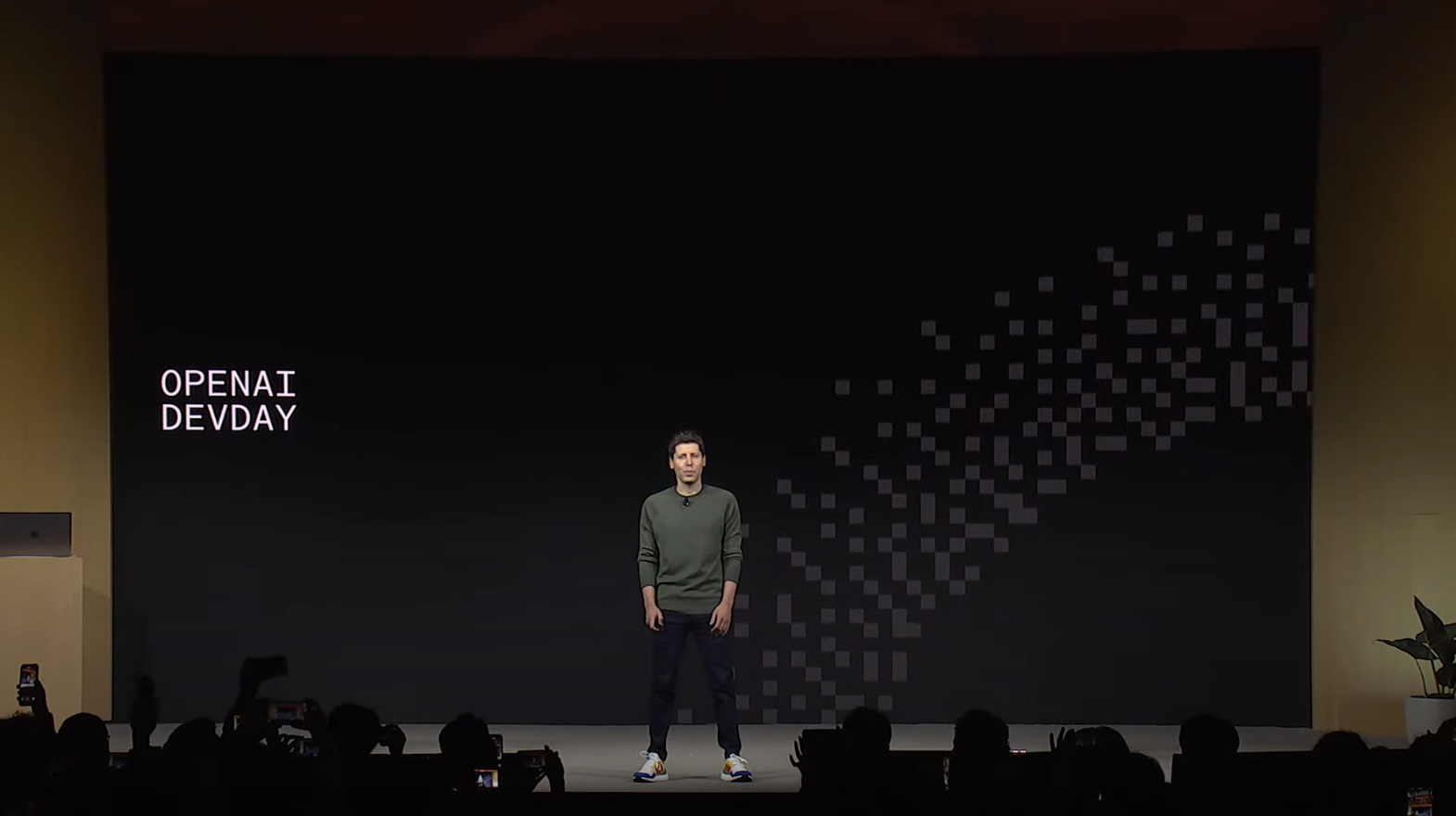- Published on
Exploring the Frontiers of AI: Key Takeaways from OpenAI's DevDay 2023
- Authors

- Name
- Ivan Foong
- @vonze21

Exploring the Frontiers of AI: Key Takeaways from OpenAI's DevDay 2023
TL;DR
- GPT-4 Turbo Introduced: More capable and cost-effective than GPT-4, with a 128K token context window.
- Assistants API Launched: Enables the creation of complex AI applications with enhanced interaction capabilities.
- Custom GPTs and GPT Store Announced: Personalized AI models and a marketplace for sharing and monetizing AI creations.
- Custom Models for Organizations: Tailored AI models for businesses with unique data and operational needs.
- Copyright Shield Introduced: Legal protection for users against copyright infringement claims related to AI-generated content.
- Additional Enhancements: Improvements in function calling, a new JSON mode, and tools for enhanced AI interactions.
Introduction
The recent OpenAI DevDay, a landmark event for AI enthusiasts and developers alike, unveiled a plethora of advancements in artificial intelligence, demonstrating the rapid pace at which AI is being applied to real-world scenarios. This article serves as a primer to the uninitiated and a summary for the tech-savvy, outlining the significant breakthroughs and initiatives announced at the event.
1. GPT-4 Turbo: A New Era of Efficiency and Affordability
OpenAI introduced GPT-4 Turbo, an enhanced version of the already powerful GPT-4 model. This new iteration boasts a staggering 128K token context window, equipping it to handle over 300 pages of text in a single prompt. Notably, GPT-4 Turbo has been optimized for performance, resulting in a significant reduction in prices for input and output tokens. This development marks a significant step towards making advanced AI technology more accessible and economically viable for a broader range of applications.
2. Assistants API: Paving the Way for Complex AI Applications
The launch of the Assistants API represented a significant leap forward in AI application development. This new feature allows for the creation of sophisticated, agent-like AI applications that can understand and execute complex commands. The Assistants API empowers developers with tools to build AI assistants capable of leveraging a variety of models and tools to perform tasks, facilitating a new level of interaction and continuity in AI-driven applications.
3. Custom GPTs and the GPT Store: Democratizing AI Development
An exciting announcement was the introduction of Custom GPTs and the GPT Store. Custom GPTs are tailored versions of ChatGPT, which can be customized for specific tasks or roles using simple instructions, without the need for coding. The upcoming GPT Store is envisioned as a marketplace for these custom GPTs, enabling developers to share and monetize their AI creations. This initiative aims to foster a community of AI builders and users, promoting innovation and collaboration.
4. Custom Models: Tailored AI for Enterprise Needs
OpenAI also unveiled Custom Models, specialized AI models designed to meet the unique requirements of organizations, especially those with large, proprietary datasets. These models are developed in close collaboration with OpenAI researchers, offering deep customization and integration with specific business processes and data ecosystems. This program caters to enterprises seeking AI solutions beyond the capabilities of standard models, providing them with a competitive edge.
5. Copyright Shield: Legal Safeguard for AI Content Creation
In a move to address the legal complexities associated with AI-generated content, OpenAI introduced the Copyright Shield. This initiative provides legal protection for users of the OpenAI platform, covering costs in case of copyright infringement claims related to the use of its features. This feature underscores OpenAI's commitment to ethical and responsible AI development, offering peace of mind to developers and businesses.
6. Additional Enhancements: Making AI More Versatile and User-Friendly
OpenAI's DevDay also showcased other enhancements, such as improvements in function calling and the introduction of a new JSON mode for developers. Tools like the Code Interpreter and Retrieval were highlighted, enhancing AI responses using external data sources. These advancements underscore the ongoing effort to make AI more efficient, interactive, and adaptable to a wide range of tasks and applications.
Conclusion
OpenAI's DevDay 2023 highlighted the dynamic and fast-evolving landscape of AI technology, showcasing advancements that enhance capabilities while emphasizing accessibility and legal compliance. These developments signify crucial steps toward integrating AI into diverse sectors, offering both challenges and opportunities.
You can watch the Opening Keynote at this youtube link
How do you see these innovations impacting your field or daily life? Drop your comments below!